Words of Wisdom - Shastra
& Shastrakaras speak
For Books and shastra downloads see Main Index, under
Books:
Om Namo Bhagavate Vasudevaya
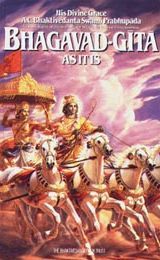

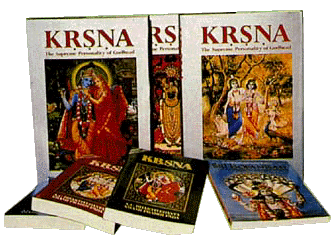
The Complete Works of Srila Prabhupada
All the books, the letters and conversations at your
fingertips


All Srila Prabhupada's books and more on one disk
http://www.vedabase.com





Srila Prabhupada's Audio lectures to listen to on-line:
http://www.hare-krishna.org/srila-prabhupada-lectures.htm
Listen to Srila A.C. Bhaktivedanta Swami Prabhupada on-line
- all 900 of his lectures are available HERE:
http://www.prabhupadavani.org/
Srimad Bhagavatam - the entire lecture series listen and
read along on-line - Narrated by Amala Bhakta dasa:
http://www.prabhupadavani.org/SB_index.html
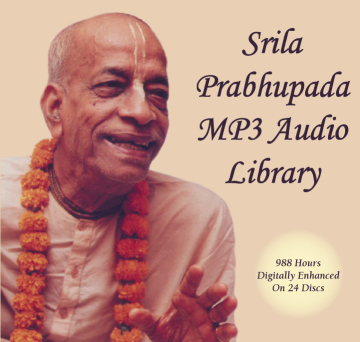
The new enhanced Prabhupada MP3 series
http://www.prabhupada.com/store/store.php?page=product.php&id=MP3AUDIOLIB

Srila Prabhupada Vyasa-puja book 2007
http://www.krishna.com/node/1048
Vyasa-puja is an annual celebration by the devotees of Lord Krishna
to offer homage to their guru, or spiritual teacher.
There are two versions of the Vyasa Puja Book based on the speed of
your internet connection.
If you are unable to open the file, download Acrobat Reader.
High speed connections, with pictures.
Vyasa-puja
Book 2007 [PDF/ZIP, 2.11MB]
Low speed connections, no pictures.
Vyasa-puja
Book 2007 (no pictures) [PDF/ZIP, 2.11MB]








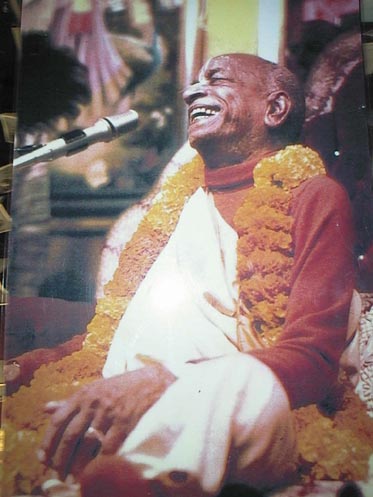
Visit "Prabhupada Connect" for all manner of Prabhupad
Nectar:
http://www.prabhupadaconnect.com/Index.html
Srila Prabhupada's Final Lesson Video - Downloadable and
viewing on-line
http://users.iskconludhiana.com/images/thumbnails.php?album=21


All Srila Prabhupada's original books
available for sale here.

Download all the Hare Krsna teachings which includes
all Vaisnava and
Vedic concepts by visiting one of the sites listed at
the following address.
http://www.geocities.com/suci123/bookdownloadsites1.html
The Bhaktivedanta Book Trust
Srila Prabhupad Memorial Library
http://www.krishna.com/main.php?id=33


33 Books Online Including Srimad Bhagavatam!
http://www.geocities.com/freeprabhupadabooks
The compressed "self extracting" file mentioned is now currently
available for download
http://www.krsnaconsciousness.org/Gauranga/Folio/BhaktivedantaVedabase_DOS.exe

Download or Listen to Prabhupad Bhajans HERE:
http://www.prabhupadavani.org/web/text/Bhajans.html


On-line 1972 McMillan edition - Bhagavad Gita As It Is:
http://www.asitis.com/

Bhagavad Gita AS IT IS on-line through the Tirupathi
Balaji site:
http://www.bhagavad-gita.us/

Bhagavad Gita Study guide on-line book:
http://chantandbehappy.com/gita/studyguide/StudyGuide-main.htm
Bhagavad Gita Study guides by numerous Iskcon devotees
- FREE downloads:
http://www.veda.harekrsna.cz/library/#3

All the Scriptures you'd ever need 4 FREE
http://www.hknet.org.nz/index-books.htm
http://www.hknet.org.nz/DDB.htm
http://www.hknet.org.nz/DDB2.html
last updated 4th August 2003


Srimad Bhagavad Gita AS
IT IS
Bhagavad Gita: Chapter
6 - Dhyana-yoga
TEXT 38
kaccin nobhaya-vibhrastas
chinnabhram iva nasyati
apratistho maha-baho
vimudho brahmanah pathi
WORD FOR WORD
kaccit--whether; na--not; ubhaya--both; vibhrastah--deviated
from; chinna--torn; abhram--cloud; iva--like; nasyati--perishes; apratisthah--without
any position; maha-baho--O mighty-armed Krsna; vimudhah--bewildered; brahmanah--of
transcendence; pathi--on the path.
TRANSLATION
O mighty-armed Krsna, does not such a man, who is bewildered
from the path of transcendence, fall away from both spiritual and material
success and perish like a riven cloud, with no position in any sphere?
PURPORT by HDG Srila A.C. Bhaktivedanta Swami Prabhupada:
There are two ways to progress. Those who are materialists
have no interest in transcendence; therefore they are more interested in
material advancement by economic development, or in promotion to the higher
planets by appropriate work. When one takes to the path of transcendence,
one has to cease all material activities and sacrifice all forms of so-called
material happiness. If the aspiring transcendentalist fails, then he apparently
loses both ways; in other words, he can enjoy neither material happiness
nor spiritual success. He has no position; he is like a riven cloud. A
cloud in the sky sometimes deviates from a small cloud and joins a big
one. But if it cannot join a big one, then it is blown away by the wind
and becomes a nonentity in the vast sky. The brahmanah pathi is the path
of transcendental realization through knowing oneself to be spiritual in
essence, part and parcel of the Supreme Lord, who is manifested as Brahman,
Paramatma and Bhagavan. Lord Sri Krsna is the fullest manifestation of
the Supreme Absolute Truth, and therefore one who is surrendered to the
Supreme Person is a successful transcendentalist. To reach this goal of
life through Brahman and Paramatma realization takes many, many births
(bahunam janmanam ante). Therefore the supermost path of transcendental
realization is bhakti-yoga, or Krsna consciousness, the direct method.
His Divine Grace A.C. Bhaktivedanta Swami Prabhupada
Copyright 1983 The Bhaktivedanta Book Trust International. Used with
permission.

Bhagavad Gita As It Is - http://www.asitis.com/
Bhaktivedanta Vedabase - Bhagavad Gita on-line http://bhagavadgitaasitis.com/
Bhaktivedanta VedaBase: Bhagavad-gita As It Is http://vedabase.net/bg/en
Bhagavad Gita Multi Media Web-version http://chantandbehappy.com/gita/
Listen to Bhagavad Gita on line - http://www.Gitamrta.org
View our Bhagavad Gita Overview:
http://www.hknet.org.nz/BG.html
Archive: http://www.cs.rice.edu/~vivek/btg/archive/
Home Page: http://www.cs.rice.edu/~vivek/btg/
Join Bhagavad Gita eGroups HERE
mailto:bhagavad_gita-owner@egroups.com


Prabhupada Uvacha:
(here's some nectar, sometimes it comes in the form of Srutakirti prabhu's
diary, other times from Govinda dasi's diary, Hari Sauri prabhu's Transcendental
Diary, Bhurijan prabhu's book, or sometimes from a letter, or other related
source, but still nectar...)
Becoming a Servant, Excerpts from Prabhupada's
Lectures
In his lectures, Prabhupada often spoke of the
need to give up the mood of being master and to accept the mood of a servant.
Prabhupada: Disease is disease. Actually that
is the fact. You say that, "We are suffering from malaria. It is better
than to suffer from syphilis." No. Disease is disease. Similarly, either
Brahma or the ant, the disease is how to become master. This is the disease.
Therefore, Krsna comes to cure this disease. He says plainly, "Rascal,
you are not master, you are servant. Surrender unto Me." This is the cure
of the disease. If one agrees, "No more trying for becoming master," that
is the cure of disease. Therefore Prahlada Maharaja says nija bhrtya-parsvam:
"Engage me as the servant of Your servant." So this Krsna consciousness
movement means we have to give up this nonsense idea of becoming master.
This is Krsna consciousness. We have to learn how to become servants. Not
only servant, but the servant of the servant. That is the cure.
Spiritual life means to change our mood and activities
from enjoyer to servant. Maintaining the mood of master in spiritual life
is as contradictory as lighting a fire under water. Engaging our "master"
tendency in Krsna's service may work for a limited amount of time, but
it still skirts the essence of Krsna consciousness -- becoming a servant
of God. We have to give up the idea that we are the master.
Prabhupada: Prahlada Maharaja said, "If You kindly
want to give me some benediction, make me the servant of Your servant.
" This is an actual benediction. One who has learned to become the servant
of Krsna's servant is perfect. Therefore Caitanya Mahaprabhu says trnad
api sunicena, taror api sahisnuna. A servant has to tolerate. Sometimes
a master orders so many things, so the servant becomes disturbed. But still
he has to execute and tolerate. That is perfection.
It is easier to agree to serve God than it is
to serve God's servant. Serving the servant of God requires humility. We
are truly fortunate if Krsna sends us His representative and allows us
to recognize and serve him.
Prabhupada: When Krsna with His sixteen thousand
wives went to Hastinapura, Draupadi was inquiring from each and every wife
of Krsna. Not actually all of them, but at least the principal queens.
So every one of them was describing their marriage ceremony. Rukmini explained
that "My father wanted to hand me over to Krsna, but my elder brother did
not agree. He wanted to get me married with Sisupala. So I did not like
this idea. I wrote Krsna a private letter, that I have dedicated my life
to You, but this is the situation. Please come and kidnap me.' So in this
way Krsna kidnapped me and made me His maidservant."
Everyone of them were king's daughter. They were
not ordinary person's daughters. But they wanted to become maidservant
of Krsna. This is the idea, to become servant and to become maidservant.
Every woman should try to become maidservant of her husband, and every
man should try to become a hundred times the servant of Krsna. This is
Indian civilization. Not that "Husband and wife, we have equal rights."
That, in Europe, America, movement is going on, "equal rights." That is
not Vedic civilization. Vedic civilization means that the husband should
be a sincere servant of Krsna and the wife should be a sincere maidservant
of the husband.
Prabhupada pointed out that Western women would
rather act as equals to their husbands than as assistants. He equated that
mood with our dissatisfaction with the servant role and our impossible
desire to become master. Although the wife should think of herself as a
servant, the husband should not think of himself as her master. Krsna is
the master, and both husband and wife should peacefully adopt their appropriate
roles as servants.
Prabhupada: There is no such thing to become master.
it is useless. You cannot become master. Jivera svarupa' haya -- krsnera
nitya-dasa'. Either man or woman, everyone is servant of Krsna. We have
to be trained up in that platform to become the best servant. Not only
servants directly, but servants of the servant.
This is called parampara servant. My spiritual
master is the servant of his spiritual master, and I am also servant of
my spiritual master. Similarly, we think, "servant of the servant." This
is material disease. Krsna bhuliya jiva bhoga vancha kare, pasate maya
tare japatiya dhare. As soon as we become puffed up -- "Now I shall become
master. I shall be simply giving order. I shall not follow anyone." That
is maya. So that disease is going on beginning from Brahma down to the
ant.
Our institution is for that purpose. If somebody
comes here thinking this is a free hotel and free sleeping accommodation,
then his coming to this association is useless. He must learn how to serve.
If we take it that "Here is an institution where we can have free hotel,
free living, and free sense gratification," then the whole institution
will be spoiled. Be careful. All the GBCs should be careful that this mentality
may not increase. Everyone should be very eager to serve and to learn how
to serve. Then life will be successful.
Prabhupada cautioned the devotees to beware of
the disease of getting a position in ISKCON and then imagining we have
become the master instead of the servant. it is far better to always remain
the servant of the servant of the guru-parampara. A devotee must maintain
this consciousness regardless of his external position.
Prabhupada: Everywhere you see it. People work
day and night, but the purpose is how to become master. They cannot become
master, but their ambition is how to become master. How to become the richest
man like such-and-such big man. This is called the struggle for existence.
Everyone is trying to become the master. Nobody is trying to become a servant.
Ask anyone, "Why you are working so hard?" They will answer, "I shall get
so much money, I shall become very wealthy, I shall have so many servants,
so many workers, and I shall have control over them."
I am trying to become master instead of becoming
a servant of Krsna, but I have simply become the servant of my senses.
So my position as servant is there. Is it not? I cannot change it. Just
like a woman. If a woman dresses like a man, does it mean that she has
become a man? No. A woman is still a woman. A man is a man. Simply by changing
dress does not change the fact. Similarly, our constitutional position
is to serve. And to serve whom? Krsna. That is our constitutional position.
But falsely we are trying to become master. Therefore, instead of becoming
master, I have become the servant of my senses. This is our position.
The tongue is asking, "Why don't you come to
this restaurant." "No, no, my belly is already filled up." "No, you must
come." [Laughter.] You'll see. A man is coming from home after sumptuously
eating. As soon as he comes to the street, immediately he enters a restaurant
and drinks a cup of tea and a few biscuits. Why? What is the necessity?
You are already filled up in your belly, and still, again immediately you
are eating. "No, it is very palatable." So you are servant of your tongue.
"Because it is palatable. Although my belly is already filled up, I must
satisfy my tongue." So am I master? I'm not master; I'm the servant of
my tongue.
You cannot understand by erudite scholarship
what is Krsna. It is not possible. Then Krsna would have instructed Bhagavad-gita
to a great Vedantist. No. Krsna chose Arjuna to understand. Who was Arjuna?
Arjuna was a grhastha, a ksatriya, a soldier. A soldier is not expected
to become a Vedantist. Arjuna was not very qualified in that way to understand
Bhagavad-gita. But Krsna said, "Yes, I will speak to you this Bhagavad-gita.
The parampara is lost, so I shall again speak the old thing to you." "Why
to me?" Bhakto 'si priyo 'si me. "Because you are My bhakta. You are My
priya." So by scholarship one cannot understand Bhagavad-gita. That is
not possible. One must become a servant of the servant of Krsna.
We remain servants regardless of our masquerades.
Even if we are able to avoid serving others, we fall to serving our own
senses. No one succeeds at becoming the master.
- From the "My Glorious Master" by HG Bhurijana
dasa
To receive little snippets of nectar like this on a daily basis subscribe
HERE: or If you want to introduce anyone else in reading Srila Prabhupada
Nectars, please send their eMail addresses to mailto:krpamaya_gauranga@hotmail.com
Please Chant:
 Hare
Krishna Hare Krishna Krishna Krishna Hare Hare
Hare
Krishna Hare Krishna Krishna Krishna Hare Hare
 Hare
Rama Hare Rama Rama Rama Hare Hare
Hare
Rama Hare Rama Rama Rama Hare Hare
...................and be Happy

Listen to Srila Prabhupad on-line
....a different lecture, morning walk, conversation or
class daily.
"Material Happiness Is Not All"
73/09/24 Bombay, Bhagavad-gita 13.1-2
Listen to the entire lecture on-line:
http://prabhupadaradio.com/M3U/Gita/m3u/GT282.m3u
Prabhupada: "Nature, the Enjoyer, and Consciousness."
This is the thirteenth chapter of Bhagavad-gita. The Lord is describing
what is this material nature, who is the enjoyer of this material nature
and what is the consciousness. We are preaching about Krsna consciousness.
Now, in this chapter Krsna Himself is describing what is Krsna consciousness.
Arjuna uvaca. Arjuna inquired,
prakrtim purusam caiva
ksetram ksetrajnam eva ca
etad veditum icchami
jnanam jneyam ca kesava
Krsna is addressed here as Kesava, "the killer of the
Kesi asura." You know, in Vrndavana there is Kesi-ghata. That Kesi-ghata
is famous because Krsna killed one asura of the name Kesi. He appeared
in Vrndavana as a ferocious horse and Krsna killed him. Since then, his
name is Kesava. Krsna has got many names according to His activities. He
killed the demon Madhu, therefore his name is Madhusudana. He killed the
demon Kamsa, therefore his name is Kamsahani. There are many names. Some
of the names are in relationship with His devotees, and some of the names
are there in relationship with the demons.
There are two kinds of men: the devotees and the demons.
Daiva asura eva ca.
dvau bhuta-sargau loke
daiva asura eva ca
visnu-bhakto bhaved daiva
asuras tad viparyayah
Throughout the universe there are two classes of men.
One is called devata and the other is called asura. Devata means visnu-bhakto
bhaved daivah. Those who are devotees of the Supreme Personality of Godhead,
who is known as Visnu... Visnu has got... Sahasra visnu names there are.
Original is Visnu. So those who are devotees of the Lord, they are called
Vaisnava or devata, and those who are not devotees of Visnu may be devotees
of other demigods, but they are called the demons or the asuras. There
are many instances in the sastra. There were Hiranyakasipu, who was a devotee
of Lord Brahma. Of course, the asuras are never devotees. Sometimes they
worship the demigods for getting some material profit. Kanksantah karmanam
siddhim yajanta iha devatah. That is said in the Bhagavad-gita. Kanksantah
karmanam siddhim.
Here everyone is engaged in fruitive activities, karma.
Karma in this life and karma in the next life also. So performing great
sacrifices, giving in charity, pious activities, they are also karma. They
are meant for giving opportunity in the next life, a position in the heavenly
planet or similar other higher planetary system where the standard of living
is very, very comfortable, thousands and thousands times better than the
standard of life in this planet. But that is also karma. Kanksantah karmanam
siddhim yajanta iha devatah.
So people, they want to enjoy life within this material
world, but actually there is no enjoyment in the material world. Because,
Krsna says, there is birth, there is death, there is old age, and there
is disease. So where is your happiness? After all, you have to die. Suppose
I make very good arrangement, very nice house, very nice bank balance,
very nice wife, children, everything, but death can come at any moment.
Then where is your perfection? If after so much hard labor everything is
ready for enjoyment, but I am called by Yamaraja... Mrtyuh sarva-haras
caham. Death takes away everything. Therefore you cannot say the arrangement
you made for happy life is perfect. That is not perfect. But foolish people,
they do not know what is perfection. They simply want superficial, temporary
happiness, never mind what will happen next life or few years after.
Just like children, they want to play without caring for
future life. But it is the duty of the guardians to engage them in education
so that in future they may be happy. Similarly, all the great sages, saintly
persons, just like Vyasadeva, Narada, Devala, Asita, many, many great saintly
persons, sages... Even Krsna the Supreme Personality of Godhead comes to
give us instruction so that we can become eternally happy.
Unfortunately, in this age, which is called Kali-yuga,
the people are so low-grade that they do not like to hear all these instructions
of great sages, saintly persons or even of the Supreme Personality of Godhead.
That is the defect of this age. Therefore in the Srimad-Bhagavatam it is
said mandah. Mandah means slow, at the same time, very bad.
prayenalpayusah sabhya
kalav asmin yuge janah
mandah sumanda-matayo
manda-bhagya hy upadrutah
[SB 1.1.10]
In this age people are short-living. Their duration of
life is very, very short, so much so that at the end of this age the duration
of life will come down to twenty years to thirty years. A man of twenty-five
years will be considered as very old man. These are stated in the Srimad-Bhagavatam.
And there will be scarcity of food. On account of this scarcity of food,
people will not grow very healthy.
It is already happening. Rice is selling seven rupees
kilo, nine rupees kilo. How a poor man will eat? So the more the Kali-yuga
will advance... Now we are getting ten rupees or twelve rupees or nine
rupees kilo rice, but rice will not be available at all. That is also stated
in the Srimad-Bhagavatam. Because people are becoming Godless, naturally
the material nature will put them into suffering. That is the laws of nature.
Daivi hy esa gunamayi mama maya duratyaya [Bg. 7.14].
Just like if you become criminal, the police department
is there. The police department will give you pains, chastisement. Similarly,
the more we become Godless, the more we become careless to fulfill the
mission of human life, the more nature will give us trouble. There will
be no rain. Anavrsti, anavrsti and durbhiksa, scarcity of foodstuff, and
taxation by the government. These are the symptoms of Kali-yuga mentioned
in the Srimad-Bhagavatam. And people will become so much harassed by these
three things that they will voluntarily give up their hearth and home and
go to the forest.
Therefore those who are actually intelligent, they should
not neglect this movement, Krsna consciousness movement. It is the greatest
welfare movement for the whole human society to make people God conscious,
Krsna conscious, without which there will be so many troubles. It is already
there. So everyone is trying to enjoy the prakrti, the material nature.
Therefore the question is prakrtim purusam caiva ksetram ksetrajnam eva
ca. This is material nature and anyone who is trying to enjoy this material
nature, he is called purusa. Purusa means enjoyer and prakrti means enjoyed.
Just like in ordinary life we see a man is supposed to be enjoyer and the
woman is supposed to be enjoyed, similarly, prakrti is feminine gender
and purusa is masculine gender. Anyone who is trying to enjoy, he is purusa.
It doesn't matter, outwardly he's dressed as man or women; if he has got
the desire to enjoy, that is called purusa. And his object that is enjoyed,
that is called prakrti.
So Arjuna is asking this question, prakrtim purusam caiva:
"Kindly give me instruction about this prakrti and purusa." Ksetram. Ksetram
means the field of activity, and ksetrajnam. Ksetrajnam means one who knows,
"This is my field." Just like the cultivator, he cultivates the land. From
government there is demarcation of the land. The cultivator knows, "This
is my portion of land." Similarly, every one of us, we are cultivating
and we are given a field. This is the body. The spirit soul is the owner
of the body or the occupier of the body. Actually, he's not the owner.
That will be explained by Krsna. Idam sariram kaunteya ksetram ity abhidhiyate
[Bg. 13.2]. "This body, my dear Arjuna, is called ksetra." Ksetra means
the field of activities.
I am a human being. Because I have got this body, I am
acting in a different way than the cats and dogs, because he has got a
different type of body. His field of activities is different; my field
of activity is different. So according to the body we are acting. Idam
sariram ksetram. And there are eight million four hundred thousand types
of bodies. Jalaja nava laksani sthavara laksa-vimsati krmayo rudra-sankhyakah.
Not one type of body. Nine hundred thousand forms of body in the water,
jalaja nava-laksani.
The botanists or the expert scientists, they cannot say
how many forms of lives are there in the water. Sthavara laksa-vimsati.
The botanists there are, but they do not know how many forms of vegetable,
trees, and plants are there. But in the sastra it is said, sthavara laksa-vimsati:
"Two million types of bodies, trees, plants, grass, two millions." Everything
is specifically mentioned. In this way, there are insects also, krmayo
rudra-sankhyakah. There are birds, paksinam dasa-laksanam, one million
types of birds.
Then human being, manusyah catur-laksani, only four hundred
thousand forms of human life, of which the civilized form of life, especially
those who are born in India... To take birth in India, Bharata-varsa, is
a great fortune. Unfortunately, we are neglecting this facility given by
nature. Because in India there were so many saintly persons, so many great
sages... Even Krsna, the Supreme Personality of Godhead, He descended on
this country, India, Bharata-varsa. There were kings like Maharaja Bharata.
There were kings like Maharaja Iksvaku. There was king like Maharaja Yudhisthira,
Pariksit, so many. Unfortunately, we are neglecting our own culture. We
are now imitating how to become technologist. This is the position of India.
Nobody is interested to take this culture of Krsna consciousness seriously.
But in the Western countries, where they have tasted very
well the fruits of material advancement of life... Therefore the young
men there, they are not very much interested to live like their fathers
and forefathers. They are taking very much interest in Krsna consciousness.
So in India they have come that "Material happiness is not all." That is
required. To make the best use of a bad bargain.
continued..........
Listen to the entire lecture on-line:
http://prabhupadaradio.com/M3U/Gita/m3u/GT282.m3u
or receive in mailbox and Subscribe HERE:
mailto:lectures-subscribe@prabhupadavani.org
Sravanam kirtanam at:
http://www.PrabhupadaVani.org
© 2001 The Bhaktivedanta Book Trust International. Used with permission.


SRILA PRABHUPADA'S QUOTE OF THE DAY
So let us forget our past difficulties
and in Krishna Consciousness, if anyone faces difficulties, it is considered
as blessings, because without tapasya, or voluntarily accepting some inconveniences,
nobody can realize the Transcendence.
Letter to Jaya Govinda, Columbus
1969
Sign-up to receive these quote HERE:
mailto:haribol@pacific.net.sg

Bhaktivedanta Vedabase Network ...
http://vedabase.net/


The Scientific - Mathematical
Proof for God's existence:
http://geocities.com/sector114
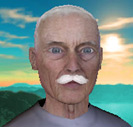
http://robot-hosting.com/php/login_nicholas.html
user name = guest
password = guest
(Collection of philosophical and mathematical proofs
for existence of God can be found in this site.)

Scientifically Philosophical Books for the layman
 ...
... ...
...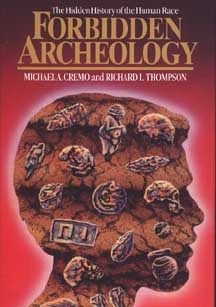 ...
...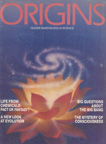
Click on any of these books to read more about them and where to get
a copy
or contact your local temple for purchases
sample of Life
comes from Life HERE.pdf

Lotus Imprints - Preserving Prabhupada's Legacy - The
Publishing House of Hari Sauri dasa
http://www.lotusimprints.com/

Quotes from Shastra - scriptures
View using Balaram font
The Advent of Bhagavad Gita

This is the annirversary day commemorating
the day that Srimad Bhagavad Gita was spoken by Lord Sri Krishna to His
dearmost devotee Arjuna at the place now known as Jyotisar Tirtha amid
the waring families of the Kurus and the Pandavas at Kurukshetra. If one
wishes one can still go and visit that place and see the monument erected
there with Krishna as Parthasarati (the chariot driver) and Arjuna the
warrior on their chariot. It is claimed by the ashram who maintain the
shrine that the tree that is next to Them is a continum growth of the original
tree witness that was there at the actual day of speaking.
Traditionally devotees come to Kurukshetra
(Dharmakshetra) and recite Bhagavad Gita from early morning until the next
morning, perform arati to Bhagavad Gita and to Krishna and Arjuna upon
the chariot, offer lamps 'deep daan' at Brahma Sarovar, shloka recitals,
shobha yatras and seminars on the significance of the Gita today.
Devotees who cannot get to Jyotisar Tirtha remember the
blessed event by reciting Bhagavad Gita, performing Bhagavad Gita ahuti
of each verse or selected chapters into the sacred fire, and discussing
the subject matter of Bhagavad Gita in the association of devotees. Distribution
of Bhagavad Gitas' on this day is also a very auspicious activity to perform.
Remembering the Scene:
The Pandavas army took the western side of the battlefield
of Kurukshetra. They were facing the east. Their army was stationed near
a lake. A white royal umbrella was seen in the Kauravas army. The soldiers
started warning up at the thought of the battle ahead. Blowing of conches
raised a great tumult and beating of drums and many other instruments were
sounded to announce the readiness for the war. Excitement was building
up.
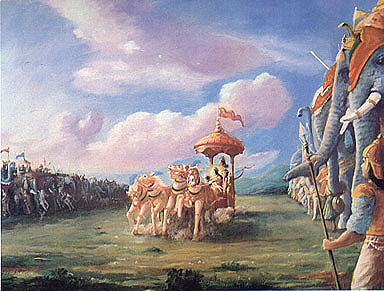
The warriors of both the sides met and settled the rules
of the war. Only equals will fight in personal duels. Those who surrender,
there lives will be spared, No charioteer, animal, or servants who were
not soldiers were to be attacked. These and some other rules that were
usual in a Dharma-Yuddha or a righteous war were finalised and both the
sides agreed to abide by them.
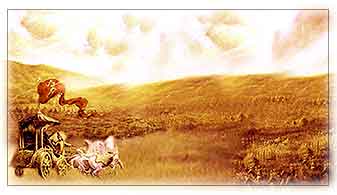
On the eve of the war, sage Vyasa visited the palace of
Dhritarastra, who was his son, now the terrible days are in store. All
your sons and the kings will be killed soon. This is settled by fate. It
is ordained so, do not be sorry. I shall grant you your eyesight so that
you may witness the war. Dhritarastra was shaken by the stark words of
the sage. He said, ‘My lord, I have been blind all my life. I do not want
to see my sons dying in the battlefield. If someone can give me an account
of the war as it unfolds, I shall be happy. Vyasa said, Sanjaya would get
the power to see everything that happens in the war. He will be able to
see during the day as well as in the night. He shall be even able to know
the thoughts of the persons engaged in the war. He shall not be tired or
exhausted. The omens are all against the Kauravas." Saying this the great
sage departed.
(After this the entire account of the war is as related
by Sanjaya to the blind king Dhritarastra)
Duryodhana was busy arranging his troops in a battle array.
He told Dussashan, ‘take care to protect our grandsire, Bhishma. All the
chariots and warriors should be placed in such a position to Bhishma. He
alone is capable of destroying the entire army of the Pandavas led by Dhristadhyumna.
We should pay special attentions to kill Shikhandi. He could be a source
of danger to Bhishma.
Then (one Akshauhini of Army comprises of 21870 chariots,
21870 elephants, 65610 horses and 109350 men.) akshauhinis of the Kauravas
army was arranged in Vyuha (battle array) and one akshauhini was under
the direct control of Bhishma. Bhishma chariot was white-silver coloured,
it was driven by white horses and his flag was golden, bearing his personal
insignia. The Sun was rising in a golden dawn. Bhishma spoke to his soldiers,
"Today is a very auspicious day. The gates of heavens are open to all the
Kshatriyas who will be fortunate to die in the battle. It is not beckoning
of a Kshatriya to die in bed or of sickness. Battlefield is the only glorious
place to die. Without thinking about tomorrow do your best to win the war.
Karna was the only warrior who had not joined the war. Bhishma chief body
guard was Ashwathama, who was supported by seven more warriors. Salya and
Bhurishrava were among them. Duryodhana’s banner was proudly fixed a top
his chariot.
Looking at the vast army of the Kauravas, Yudhisthira
said to Arjuna. Their army is so huge. They have eleven akshauhinis against
them we have only seven. How best can be arrange our army in battle formation.
Bhishma is quite formidable. Arjuna said, that he would arrange the army
in a ‘Vyuha’ named ‘Vajra’. This was the favourite arrangement of lord
Indra. Dhristadhyumna was in the centre of the army. Bhima, Yudhisthira,
protected him and Arjuna supported Shikhandi. The most prominent banner
in the Pandava side was that of Arjuna, having lord Hanumana himself on
it, driven by Krishna, having white horses. All those who knew the reality,
saluted Krishna. Krishna said to Arjuna, ‘See the army of the Kauravas,
led by your old grandsire. The lion among the Kaurava heroes, is your first
victim.
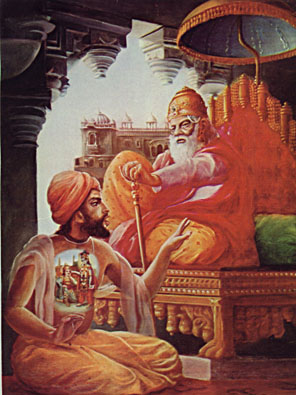

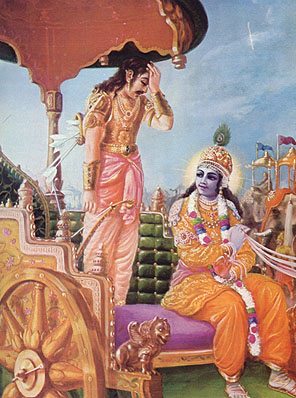

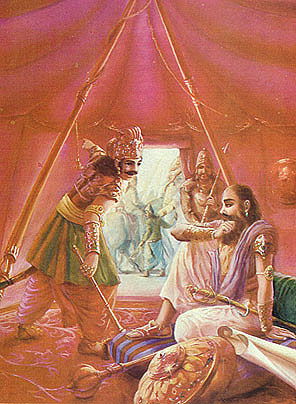
courtesy BBT Int.

This is the anniversary day commemorating
the day that Srimad Bhagavad Gita was spoken by Lord Sri Krishna to His
dearmost devotee Arjuna at the place now known as Jyotisar Tirtha amid
the waring families of the Kurus and the Pandavas at Kurukshetra. If one
wishes one can still go and visit that place and see the monument erected
there with Krishna as Parthasarati (the chariot driver) and Arjuna the
warrior on their chariot. It is claimed by the ashram who maintain the
shrine that the tree that is next to Them is a continum growth of the original
tree witness that was there at the actual day of speaking.
Traditionally devotees come to Kurukshetra (Dharmakshetra)
and recite Bhagavad Gita from early morning until the next morning, perform
arati to Bhagavad Gita and to Krishna and Arjuna upon the chariot, offer
lamps 'deep daan' at Brahma Sarovar, shloka recitals, shobha yatras and
seminars on the significance of the Gita today.
Devotees who cannot get to Jyotisar Tirtha remember the
blessed event by reciting Bhagavad Gita, performing Bhagavad Gita ahuti
of each verse or selected chapters into the sacred fire, and discussing
the subject matter of Bhagavad Gita in the association of devotees. Distribution
of Bhagavad Gitas' on this day is also a very auspicious activity to perform.
What is the Bhagavad Gita?
The Bhagavad Gita(BG) was spoken by Sri Krishna to His
friend and disciple, Arjuna at the beginning of the epic war, Mahabharata.
BG provides the concise conclusion of the millions of verses in all the
Vedic scriptures. In just eighteen chapters containing seven hundred verse,
Sri Krishna answers all questions about the duty of the living entity.
In glorifying the BG, Lord Shiva says in the Gita Mahatmya (Padma Purana)
that it is sufficient to lead one to liberation.
How should one read the BG?
The BG should be studied in the same mood as it was heard
by Arjuna. Sri Krishna declares that He is revealing this most confidential
knowledge to Arjuna because is not envious and He is a friend. So one must
read and understand the BG in the mood of at least theoretically accepting
the position of Krishna as God. This knowledge is never revealed to one
who reads it in a challenging and speculative mood.
Owing to the universal message in the BG, many people
take to it instinctively. Unfortunately its importance has also given rise
to many people speculating and misinterpreting it. In order to protect
the trusting people from this kind of cheating, Sri Krishna stresses the
importance of Paramapara (disciplic succession) and Guru (spiritual master)
in receiving the knowledge of the BG.
Who should read the BG?
The BG is often referred to as the "Handbook for humanity".
Never in the BG has Sri Krishna restricted the scope of the BG to Hindus
or Indians. It is completely non-denominational, meant for any one inquiring
about his reason for existence. Indeed many people following Christianity
or Islam get a much better perspective of their own religion after reading
the BG and are able t o follow their religions with greater conviction.
What is Purpose of the BG?
The BG was spoken to guide the conditioned soul on the
path of the spiritual advancement. It is presented as principle and details.
The dominating principle of the BG is to develop God consciousness. In
the details, Sri Krishna explains three primary ways of doing this and
then further expands on these paths. He then relates them to each other
and brings forth the single most effective path for returning back to God
What are the three paths?
These paths are explained as yoga. The Sanskrit word
"yoga" means connecting to the absolute, and it is in this context that
the word yoga is used in the BG.
The three paths given by Sri Krishna are Karma yoga, Jnana
yoga and Bhakti yoga. The first six chapters primarily discuss Karma yoga,
liberation by performing prescribed activities. The last six chapters primarily
talk about Jnana yoga, liberation by worshipping the Lord through one's
intelligence. Ensconced between these two "protective" covers, like a pearl
in the oyster, in the middle six chapters, Krishna reveals the most confidential
of all knowledge, Bhakti yoga, the path of pure, unalloyed devotional service.
He declares this to be the highest, the easiest and the fastest path to
Him, and for one who is fortunate to embark on it, the binding illusions
of Maya are dispelled in no time.
What is Karma yoga?
A person situated in Karma yoga executes one's prescribed
duties. These duties are as prescribed by the Varnashrama system created
By Krishna through the Vedas. According to one's ability and inclination,
a person may acquires a particular varna. He may become a Brahaman (teacher,
guide), Ksatriya (administrator, warrior), Vaishya (merchant, farmer) or
Sudra (worker). According to his situation he lives in one of the four
ashrams: Brahamacari (student), Grahastha (married), Vanaprastha (retired)
and Sannyasa (detached). The eight fold Varnashram system is created to
allow one to be aware of his prescribed duties and execute them properly.
It is important to note here is that the BG stresses that a varna is acquired
by one's ability and inclination, never by birth. So in the BG, there is
no support of the "caste-system" prevalent in India. The Varnashram system
appears naturally in all societies over the world.
Performing prescribed duties will earn a person much pious
credit, but it will also continue to bind him to the material world. So
Karma can be "sakarma" (done in anticipation of enjoying its fruits) or
"nishkarma" (detached from the results). In both cases a person is attached
to performing the activity. However, when a person performs activities
only for the pleasure of the Lord, he has reached the stage of Bhakti.
For instance Sadhna (japa, arati, kirtan) are activities performed with
no material motives, simply to glorify or remember the Lord. Thus Karma
yoga can be used to elevate one self to the position of Bhakti yoga by
first performing prescribed activities, then renouncing the fruits of the
activities to Krishna and finally by renouncing the activity in itself
to Krishna.
What is Bhakti yoga?
The path of devotion is described as the most confidential
path back to Godhead. It is described as the "elevator" approach to Krishna
as opposed to all the other "staircase" paths. The essence of the Bhakti
yoga is summarized by Sri Krishna in Chapter 9, Verse 34, as follows: "Engage
your mind always in thinking of Me, become My devotee, offer obeisances
to Me and worship Me. Being completely absorbed in Me, surely you will
come to Me."
This verse, often considered to be the summary verse of
the entire BG, contains the essence of the existence of a spirit soul.
In the material world, trapped in the illusory sense of identifying with
the body and its extensions, a spirit soul remains forever bewildered by
the duality of existence. However by simply surrendering to Krishna, understanding
Him to be the original, primeval cause of all causes and thus worshipping
Him without any desires of material benefit, one can easily go back to
Him.
Bhakti yoga does not mean inactivity. Indeed a bhakta
is most active, for he sees all his activities now in relation to the Supreme.
But he is detached from the activity and the fruits of the activity, neither
happy in success nor distressed in failure, understanding that all this
is ultimately for Krishna and coming from Him only.
What is Jnana yoga?
In the Jnana section Krishna elaborates about the five
factors of existence: Isavara (God), Jivatma (Soul), Kala (Time), Karma
(actions) and Prakriti (Nature). He explains that while Kala, Prakriti,
Jiva and Isavara are eternal, Karama is not. As long as one is involved
in fruitive activities, the cycle of Karma, performed in one of the three
modes of material Nature (goodness, passion, ignorance) is binding. For
every action, good or bad, there is a reaction. This cycle can only be
broken by performing devotional service, since that does not have any reactions,
good or bad. In this stage the person transcends the material plane of
existence and enters into the spiritual realm.
When Krishna explains the path of spiritual advancement
by knowledge, Arjuna gets confused between the Karma (action) and Jnana
(inaction). Krishna explains that one must strive for activities performed
in knowledge of Him, which will ultimately lead to Bhakti. Philosophy without
faith is speculation, and faith without philosophy is rituals. The two
must complement each other. Thus, Krishna once again stresses that the
ultimate goal of all transcendentalists is Him. They may reach Him directly
by Bhakti or first reach Bhakti through Karma or Jnana.
Why has Krishna given alternatives?
A confusing aspect of the BG is the fact that while acknowledging
the superiority of Bhakti yoga. Krishna spends considerable time talking
about Jnana and Karma yoga. He even speaks briefly about the eight fold
astanga yoga process followed by the mystics. For many people this is very
confusing if not apparently contradictory.
In reality. Krishna is offering some thing for every one
according to their levels of advancement and inclination. As God, He does
not interfere with the free will of a living entity. But as the most compassionate
well wisher He wants every one to leave this material world of misery and
return to the original spiritual abode.
So, for a person attracted to action, there is Karma yoga.
For the intellectual there is Jnana yoga. For the mystic there is astanga
yoga. The BG meets the person at the level they are in and gradually
elevates them to the platform where they become qualified to execute Bhakti
yoga, pure devotional service. A very few fortunate souls, by the causeless
mercy of Krishna and His devotees, are able to take directly to Bhakti,
and for them the way back to Godhead is quick and easy.
Conclusion
We hope that these points address your interests and
motivate you to read the Bhagavad Gita As It Is.
Read Bhagavad Gita On-line HERE: http://www.asitis.com/

Bhagavad Gita Pictures - Copyright ©2005 The Bhaktivedanta Book
Trust
International, on the web at http://www.krishna.com.
Used with permission.
Courtesy of http://www.vedabase.com/
used
with permission

All pictures from Srimad Bhagavatam and Iskcon works - Copyright ©2005
The Bhaktivedanta Book Trust
International, on the web at .http://www.krishna.com/.
Used with permission.









![]()
![]()
![]()
![]()

![]()
![]()
![]()
![]()

![]()
![]()
![]()
![]()




















